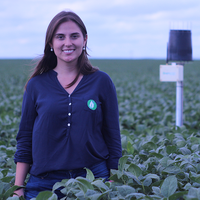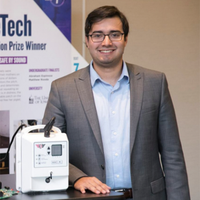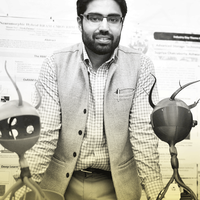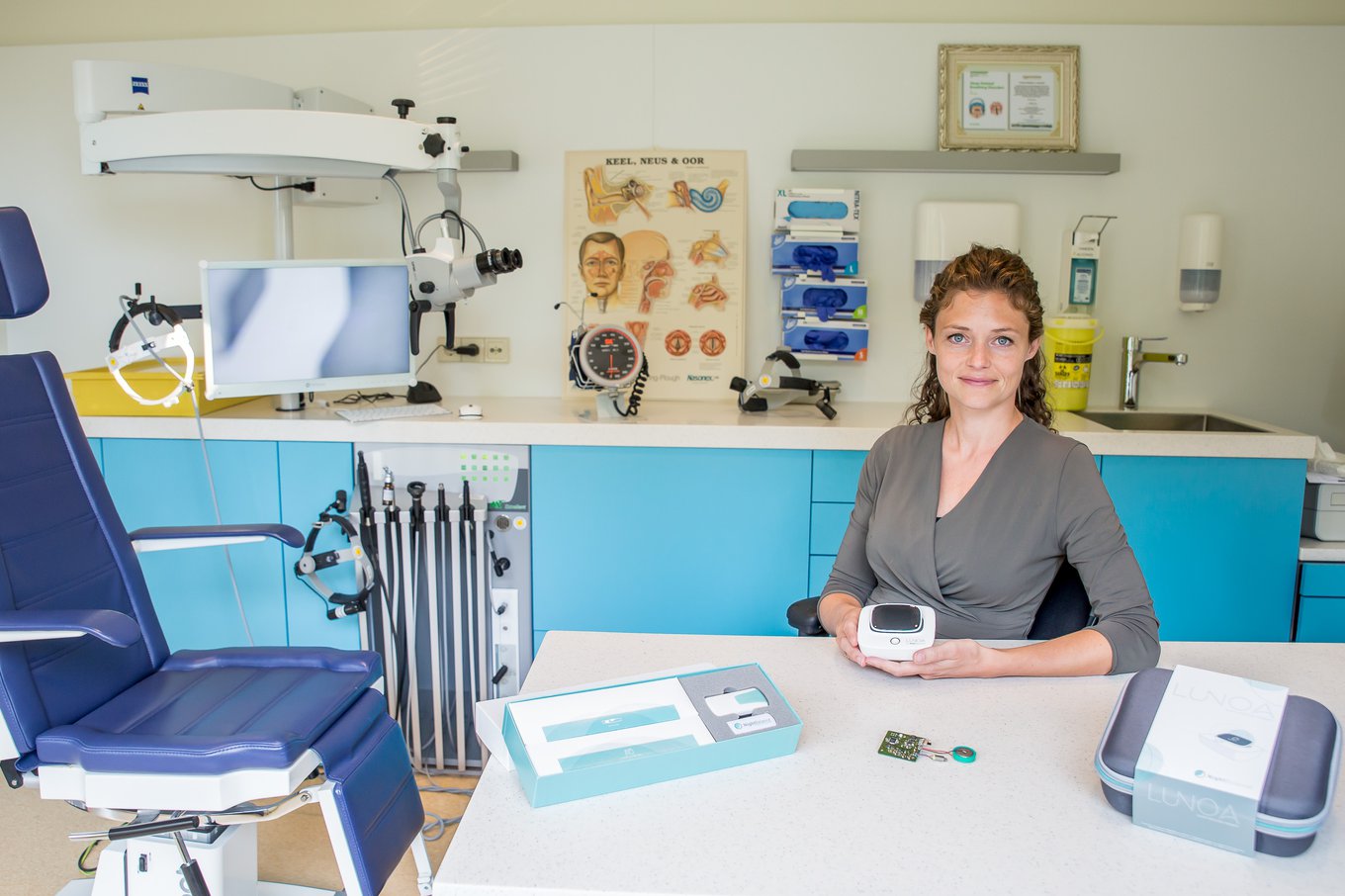Between 1% and 5% of the western population suffers from obstructive sleep apnea (OSA). This is a disorder that occurs when breathing is interrupted during sleep, and that has implications for the cardiovascular health of patients. For instance, OSA increases the risk of cardiac arrest by 30%. There are currently three treatments available: continuous positive airway pressure through a mask that helps maintain patients’ breathing while they sleep; mandibular repositioning devices, and lastly, surgery.
Although Eline Vrijland-van Beest always wanted to dedicate herself to medicine, at secondary school she discovered a preference for physics and mathematics that made her choose engineering. However, thanks to her latest creation, this engineer is already contributing to improving the health of people with obstructive sleep apnea. Vrijland-Van Beest has founded Night Balance, a company through which she has developed a sensor (Sleep Position Trainer, SPT) so that patients with OSA sleep in a proper position. Thanks to this advance, the young woman has become one of the Innovators Under 35 Europe 2018 from MIT Technology Review.
The sensor, which is a little larger than a USB memory stick, is put into a strap placed around the chest. Given that more than half of the episodes of OSA no longer occur if the patient sleeps lying on their side, the device emits small vibrations when the person turns over onto their back and is in a phase of light sleep. In this way, it helps the patient to get into a correct position without disturbing deep sleep.
Currently, more than 5,000 patients around the world use SPT, and it is sold in 10 countries. This innovator believes that the biggest challenge she has faced is adapting to each of those territories, as well as convincing the health sector of the potential of Night Balance. “Some countries require that clinical trials take place in their territory before they will accept the SPT," she explains.
A few months ago, Night Balance was bought by the giant Phillips. Vrijland-van Beest says: “This is very recent, but it is true that Philips is helping us a lot, especially with marketing". Another of this year’s achievements has been to ensure that the SPT is reimbursable by the Dutch health system, making it more accessible.
François Jouen, senior researcher at the Practical School of Higher Studies (France) and member of the jury of Innovators Under 35 Europe 2018, considers that Night Balance is a "very good and mature project". Jouen highlights that Vrijland-van Beest has been able to "invent a new therapy, build a business model and produce a technology that gives treatment to sleep apnea patients".
By Olga Rodríguez
Translation: Lisa Rushforth




